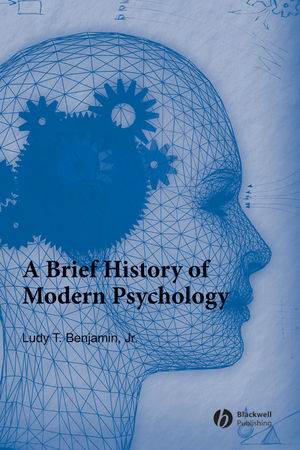-

Browse by Chapter
-

Browse by Resource
Benjamin:
A Brief History of Modern Psychology

Welcome to the Instructor Companion Site for
A Brief History of Modern Psychology
“From a renowned historian and teacher of psychology comes what psychology students will welcome -a crisp and beautifully crafted history of their discipline, replete with fascinating stories of the people who shaped it and whose shoulders we now stand upon.” - David G. Myers, Hope College “A Brief History of Modern Psychology will itself become part of the history of modern psychology. It is a classic work by one of the most distinguished living historians of psychology. Anyone who wishes to understand how the field of psychology has reached its present state should read this book.” - Robert J. Sternberg, Tufts University Welcome to the website to accompany A Brief History of Modern Psychology. In A Brief History of Modern Psychology, Ludy T. Benjamin, Jr., leading historian in the field, discusses the history of both the science and the practice of psychology since the establishment of the first experimental psychology laboratory in 1879. The book:
Further information about the book is available here. The following resources are available at this site:
(Please note that these resources are password protected and only available to instructors. Use the link at top to navigate to the test manual.) |


